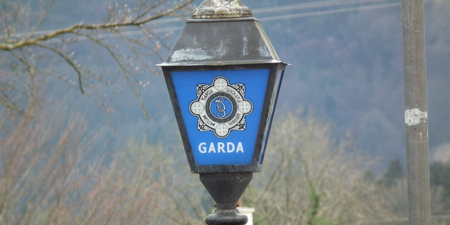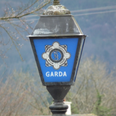Half a million people were scheduled to show up to the Phoenix Park today to attend the papal mass.
When it was reported a few months back that all of the tickets to the event had sold out, it was almost impossible not to make the same joke that everybody else was already making.
And while reports suggest that the full 500,000 didn’t actually show up to mass today, a considerable amount of people did. Somewhere between 130,000 and 300,000 of them.
The church means different things to different people. It’ll represent something different and conjure conflicting images, depending on who you ask. For some, those are images of peace, joy, and acceptance. And for others, they’re child abuse, laundries, and septic tanks in Tuam.
Today though it seemed almost impossible to witness the excitement of the masses and not be immediately reminded of the abuse, the cover-ups, and the church’s abhorrent treatment of women.

When the Popemobile did the rounds in Phoenix Park, the crowd flocked to either side of the vehicle with their hands outstretched, some running alongside the car, others trailing along behind it.
As he gave mass, the crowd was eerily silent. Attendees sat with their eyes closed, in the rain, listening intently to words that most of them probably couldn’t understand, yet knew all too well.
When it was over, families embraced, children ran about, and a hundred thousand people picked up their camping gear and headed back towards the city, country, airport or wherever it was they had come from.
Before that, Daniel O’Donnell sang a rendition of ‘Here I Am Lord’ before descending into one of his more recognisable hits. You could hear the cheers clearly from the portable bathroom out the back of the press centre.
In NWCI, we stand with survivors. We #stand4truth pic.twitter.com/X4cZ5v1Gvo
— Womenscouncilireland (@NWCI) August 26, 2018
At the same time that Pope Francis was saying mass, a Stand 4 Truth rally was taking place at Dublin’s Garden of Remembrance. The rally was a solidarity event for those who have been abused or harmed by the Catholic church.
Protesters marched through the streets holding signs, calling for justice, and asking the church to admit their responsibility for covering up the clerical sex abuse of thousands of children – the exact numbers for which are still unknown due to the vast amount of survivors who have yet to come forward.
Amnesty International’s Colm O’Gorman asked the crowd to consider why they were there. He said he had been asked by journalists how Ireland had changed in recent years. He pointed to that moment as his answer.

I am not a religious person. I haven’t attended a mass that wasn’t a wedding in about 10 years. I’ve completed all my sacraments to date but I wouldn’t consider myself a Catholic. I don’t pray, I never bless myself when the Angelus comes on, and as much as I would like to believe that there is some form of higher power, I don’t believe in God.
I presumed the Papal mass would be a spectacle – and it was.
I also expected to come away from it feeling like I’d just experienced something unexpected, glad that I’d gone for the thrill of the offbeat. But instead I felt mildly uncomfortable, out of place, and even a little bit sad.
Ireland is still a predominantly Catholic country and yet it is not the same Ireland that existed in 1979 when the then Pope, John Paul II, visited for the first time.
Back then, it was illegal to be gay in Ireland. The Magdalene laundries were still in operation. We couldn’t get divorced, some of us couldn’t marry, and if a woman got pregnant, she had to have the baby.

Things are different now. This year, we showed that we are a compassionate country. We proved that we care about women, about listening to the experiences of those we had once ignored. We showed that when asked, we can overwhelmingly reject the church’s teachings on things like marriage, the family, and a woman’s right to choose.
It is possible to respect women’s choices, to campaign for change, and to recognise horrific human rights abuses while still having faith. It’s also entirely possible to use this faith for good and to help others.
But with this, there begs a need for awareness – a knowledge that the Catholic church, as an institution, dehumanised so many Irish people for years. The abuse and the crimes act as a constant reminder of the failures of the church as well as the state. They can’t be forgotten – faith or no faith.
This isn’t the same Ireland as the one that existed back in 1979, but it is still an Ireland that will shut down its capital city for two days and spend €32 million to welcome the leader of the Catholic church and all he represents.
The Pope made the thousands of people attending the Phoenix Park mass today feel at peace. But for many others, it made them feel the opposite.




















































